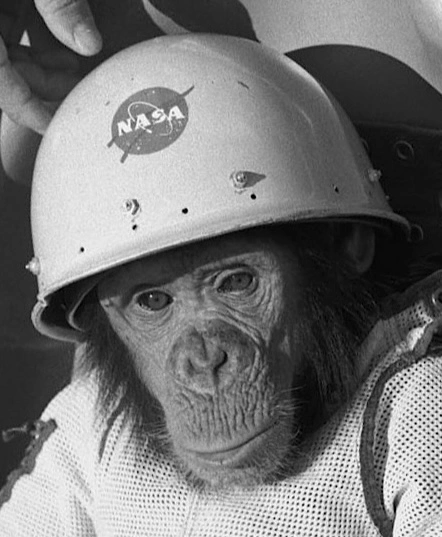Study featuring AI-generated giant rat penis retracted entirely, journal apologizes::A peer-reviewed study featured nonsensical AI images including a giant rat penis in the latest example of how generative AI has seeped into academia.
Me:
Impactful world news: Pass
Troubling local US news: Pass
News about giant rat penis: Click
sips coffee slowly
I hate the way AI is being used here, but those labels are fucking GOLD.
- Senctollic stem cells
- Dizlocttal stem ells
- Dissilced
- Rat
- Testtomcels
- Iollotte sserotgomar cell
- Spermatocial stem cells
- Stenm cells
- Retat
- dck
It’s like trying to read in a dream
At least it correctly labelled the Rat, but kinda missed the dck
See Figure 1 for a diagram of retat dck
- Air vent
- Fan
- Saddam Hussein
I loved the labels. Testtomcels.
Ever tried to see what happens when you request “an anatomical diagram of a spider, school book style”. I mean, just start by counting the legs, and once you’ve stopped laughing you can dive into the labels. It’s going to be wild. If you’re into microbiology, try asking for a similar diagram of a prokaryotic cell for extra giggles.
Well that’s a headline I didn’t expect to see this morning.
Regardless of the rights and wrongs of AI generated images, it’s quite concerning something like this makes it into a scientific journal at all.
Yeah, the Journal is at a huge loss of credibility with this. Their entire purpose is to be respectable and review submissions with a high degree of scrutiny.
Frontiers in isn’t the greatest journal to begin with
A few things came together for me here.
The paper had two reviewers, one in India and one based in the U.S.
.
“…a reviewer of the paper had raised concerns about the AI-generated images that were ignored.”
.
…the U.S.-based reviewer who said that they evaluated the study based solely on its scientific merits and that it was up to Frontiers whether or not to publish the AI-generated images…
.
"The authors failed to respond to these requests. We are investigating how our processes failed to act on the lack of author compliance… "
They don’t outright say it in the article, but it looks like the reviewer based in India was the one who actually raised concerns about the garbage images. The authors were supposed to respond, but didn’t, and the journal published anyway.
I will readily admit that this is just my own conclusion here, but – I wonder if there was an element of racism that went into ignoring the reviewer’s concerns?
Why do you bring up race? Is there anything that would imply that?
People are lazy and incompetent as fuck, and it’s been an industry wide problem that publishing companies in general have lower and lower standards of quality.
He didn’t bring up race, he brought up location. Like, you’re the one that brought up race? If it was one American reviewer and one Australian reviewer and this poster said “the Austrian caught it”, would you have made the same comment you just did?
What if the “reviewer based in India” is white?
Edit: I am a ijit, I actually agree with you, and my “what if person based in india is white” should be directed at the guy you’re replying to.
He literally said
I wonder if there was an element of racism that went into ignoring the reviewer’s concerns?
So…
I retract my statement, as I cannot read.
Happens to all of us from time to time.
deleted by creator
I see you’re as bad at reading as I am, missing my edit and response!
I brought it up purely as speculation, as one possible explanation for why the process was not properly followed. I don’t have any experience with publishing companies, whether for science journals or otherwise.
Check out their controversies section on Wikipedia. This doesn’t seem out of character for this publication. It’s more likely incompetence than malice.
Stuart
LittleBigStuart Hugh Mungus
It’s not so much the use of AI that’s upsetting as it is the “peer review” process. There needs to be a massive change in how journals review studies, before reasonable people start to question every study based on cases like this. How many false studies are currently used for important shit that we just haven’t caught yet?
It got published, people noticed it, people saw it was bullshit, it got retracted. Publishing is not the end of the line.
It’s an extreme example, but it’s still an example of the system working in the end. Reasonable people are supposed to question what they read, not blindly trust it, that’s how you catch “important shit”.
The problem is not that some bad papers get published. The problem would be them staying unchallenged. And it’s also a problem that laymen consider one random study is an undeniable proof of their argument (potentially ignoring the thousands of studies contradicting it).
Of course some things will always slip through the cracks, but this is egregious. What does their peer-review process look like that this passed through it?
Right? Even when skimming papers, it’s usually: read title & abstract, look at figures, skim results & conclusion. If you don’t notice that the figure doesn’t have real words, how is anyone making sure the methodology makes sense? That the results show what the conclusion says they show?
I am not disagreeing that this is ridiculous, I was just saying that this stupidity is not what should convince people not to take some random paper for an absolute truth, just because it was published.
Even if you eliminate fraud, bullshit and even honest mistakes, that’s just not how science works.
A shame most people are trained by both the school system and society to just take things at face value
An even greater shame is that almost no people are trained on basic statistics and think they can debunk a published study in PNAS with a Google search and some random guys blog.
deleted by creator
It’s certainly not helping.
We’re already dealing with the problem of half the (US) population only believing things when they align with their political views and now on can’t even Google something and be sure that the entire first page of results isn’t SEO AI hallucinated misinformation.
“Search engine optimized artificial intelligence hallucinated misinformation”
Omg, we are in a cyberpunk dystopia aren’t we?
Peer review was already a joke, as exposed a couple years ago by two researchers who got a paper full of BS published.
It’s been wells established that nearly all published research papers are irreproducible.
deleted by creator
Doctooore Sbaitso, please enter your name.
Man I wondered if I’d ever talk to anyone else that used it. I liked asking him to pronounce “abcdefghijklmnopqrstuvwxyz”, and he actually did a pretty good job.
deleted by creator
AI generated medical research can’t make it past peer review, it can’t hurt you
AI generated medical research that made it past peer review:
I mean “made it past”…
The 2 reviewers both brought up the images as weird, and the journal published anyways, so…
Giant rat penises will only hurt you if you have an underlying medical condition (anal fissures, etc).
The paper was authored by three scientists in China, edited by a researcher in India, reviewed by two people from the U.S. and India, and published in the open access journal Frontiers in Cell Development and Biology on Monday.
Now THAT is Maximum Trolling. I hope someone at Cell Development got fired
I was out in the snow and mine retracted entirely as well.
“I WAS IN THE POOL!!!”
South Park strikes again
Jesus, talk about getting rat fucked.
Time for a “dick of a rat” joke
At first I was like “Why” and then I realized the study was about rat penises and not about AI so now I’m furious and I hope that researcher’s school rescinds his degrees.
Trust the science


















